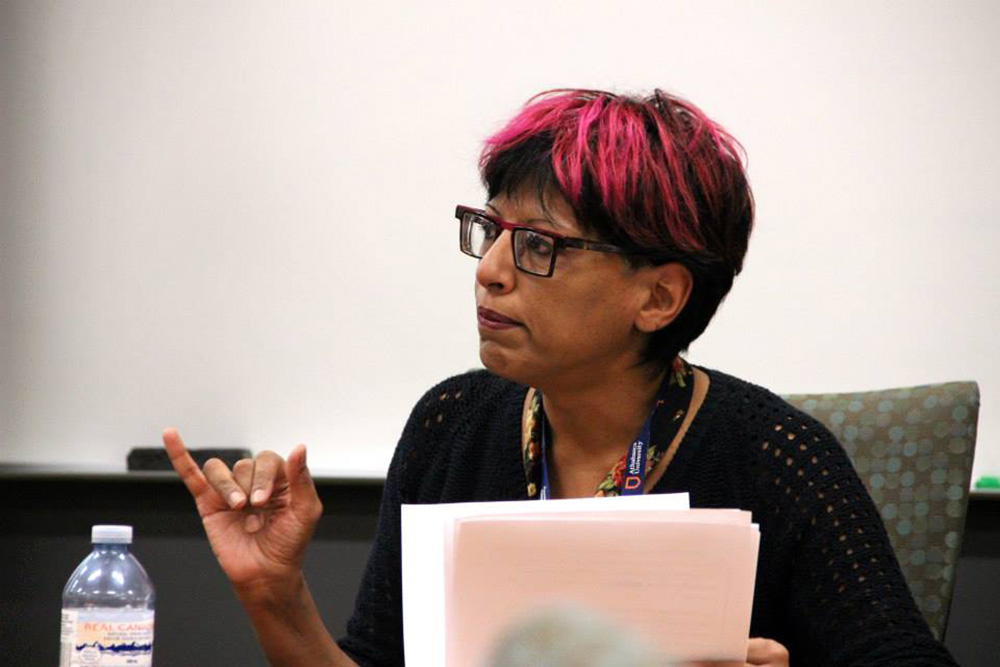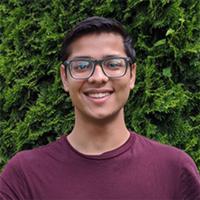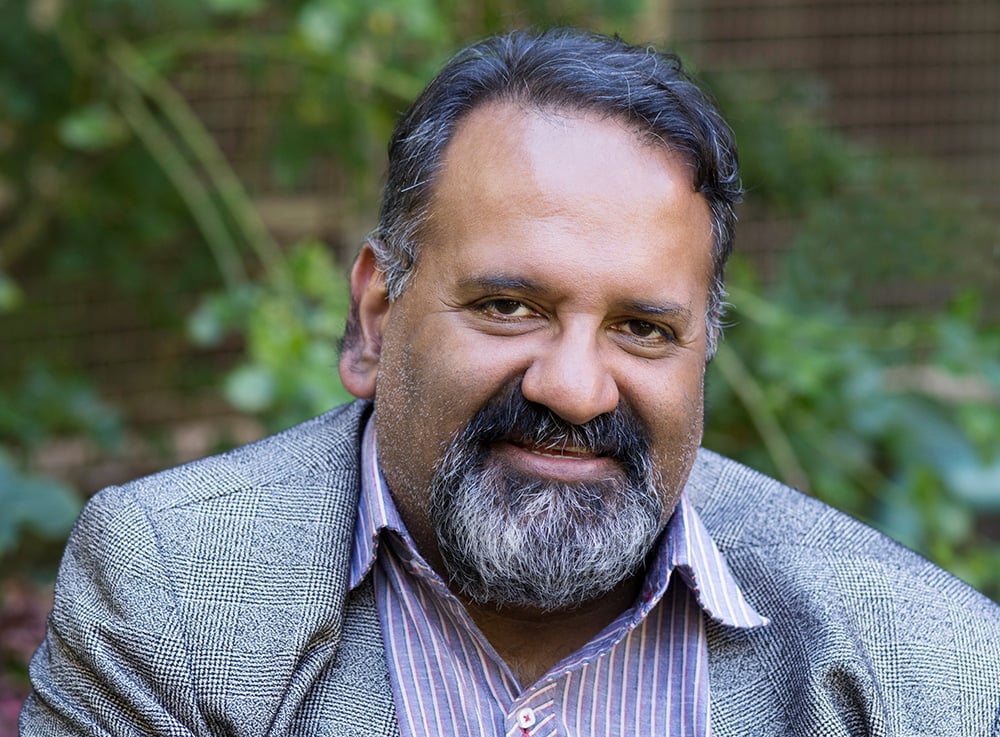The night before boarding a plane to Canada, Ruby cried in an Istanbul airport.
Ruby, who requested a pseudonym to protect his family in Iran, was happy to be accepted as a gay refugee in Canada but was also sad to leave his loved ones. He cried for three hours, grappling with anxiety but anchored by his hope for a new home.
“I didn’t know where I’m going. I didn’t know anyone. I didn’t know the language. I didn’t know any connections. I didn’t know what’s gonna happen,” said Ruby.
In Iran, Ruby faced death threats for his LGBTQ+ activism. But escaping state-sanctioned homophobia came at a personal cost. He was separated from his family and culture, and when he arrived in Vancouver, he encountered a new kind of discrimination and isolation, he said. The kind of obstacles faced by another Middle Eastern queer immigrant to Vancouver whose tragic experience was profiled at length in these pages last year.
Over the seven years he’s lived in Canada, Ruby has felt excluded from the white-dominated LGBTQ+ community. “As a sexual object, yes I feel included. But as a person, not at all,” he said.
On dating apps and at West End gay bars, Ruby said he’s been fetishized, tokenized, called a terrorist and told to go back to his country. On dates, the 41-year-old said he’s heard white men admit that they’re scared of him.
One date with a Grindr acquaintance took a turn when the man discovered a book, kept on Ruby’s side table, with some Persian Arabic written on it.
“He got up and said that book looks scary, and he thought I will do something to him,” said Ruby, who himself doesn’t follow any religion. After these encounters, the glorious image Ruby had of Canada was dismantled. He has realized that one’s birthplace doesn’t prove their open mindedness.
“[It’s like] when you’re playing a puzzle game and you reach the last piece at the end of the game,” he said. “I knew that Canada was the last square. Home is the place where you feel safe. But I didn’t know that it was going to get harder from there.”
Such incidents have left Ruby without many friends. Over the past seven years, he’s found just three new friends among the 50 people he arrived with in Canada, and none from the LGBTQ+ community.

Such lack of inclusion within the LGBTQ+ community isn’t a new phenomenon, said Fatima Jaffer, a long-time activist who’s worked with many queer people of colour who face homophobia in one community, and racism in another.
In 2005, Jaffer founded Trikone Vancouver, a collective that provides a safe space for queer South Asians in Metro Vancouver.
“Trikone’s purpose is to critique and make space in the queer community for South Asians, but also to come together to deal with homophobia in [the] South Asian community. We’re looking at both racism in the white queer community and homophobia in [the] South Asian,” said Jaffer.
As a queer, Kenyan-born South Asian woman who identifies as Muslim, Jaffer notes that whiteness has been built into mainstream ideas of queerness at the exclusion of other identities. “Everything I read about LGBTQ+ community was like white. I didn’t see any queers of colour, because they weren’t welcomed in the community and still aren’t.”
The result is to heighten feelings of isolation in gay newcomers like Ruby.
“Like you think you’re coming to Canada and everything’s going to be wonderful,” said Jaffer. “And when you’re faced with racism in the queer community, it hurts twice as much because you thought that this is the place that will accept you, a place you can call home. And that isolation, that no one likes you or gets you, is just heartbreaking.”
Ruby faced plenty of heartbreak and struggle before he arrived in Vancouver. He says it took 24 months and six “long and full-of-pressure interviews” for the UN refugee commission to verify his sexual orientation. “After that, I had another series of interviews with the Canadian embassy to prove that I am really gay,” he recalled.
Along with some 50 other refugees, Ruby flew to Vancouver. He took a series of classes about navigating through Canada and adapting to the culture, where he was warned about Canadian racism. Ruby was advised to let that slide, but he felt otherwise.
“After having faced racism and discrimination within and outside the community, I feel that the Canadian government needs to have the same cultural classes for their own people too, to explain to them how to treat other communities,” he said.
Ruby said he and other refugees didn’t receive much support beyond a $710-a-month payment, which left him vulnerable to exploitation. “[It] wasn’t even sufficient for renting a room, and there was no support when it came to psychological well-being,” he said.
Ruby found a retail job but wasn’t aware of his rights. He said he faced harassment at work and his manager took advantage of him.
The manager took Ruby on a date and offered him a pill, which Ruby said he pretended to consume. Through the night, Ruby acted as if he was under the influence and tried escaping his manager’s sexual advances. “I didn’t know my rights. I didn’t know it’s sexual abuse,” he said. After two months, he had to quit his job.
Ruby experienced some homophobia from the Persian community in this country. He recalls, while working at the store, an Iranian customer disparaged Ruby for wearing a rainbow-coloured band around his wrist.
“He said angrily, ‘Oh my god, you guys are wasting your time. Go out, find a girl for yourself and get married.’”
Though the customer later returned to apologize, Ruby said it had felt “crushing.”
In the wake of same-sex marriage legalization in 2005, Jaffer said she saw a boom in organizations like hers specifically serving queer people of colour.
“The fact that we exist as queers of colour organizations, is precisely because of racism. If we were included, we wouldn’t need these organizations. If we felt completely accepted when we walked through the door, we wouldn’t have these spaces,” she said.
Imtiaz Popat, organizer of Salaam Queer Muslim community, a collective committed to creating spaces for queer Muslims, said mainstream Pride events play a part in this history of exclusion.
Popat remembers one year in the 1990s when the Pride board decided to move the parade to Sunday to attract more American tourists. The parade coincided with the Powell Street Festival, an annual celebration of Japanese arts and culture.
“A lot of queer Asians opposed it and said that they can’t participate because of the festival. They were completely ignored. And queer Asians and queers of colour, we all feel that we’re not included in your Pride, that we’re not important to you,” said Popat.
Jaffer and Popat say that alternative queer spaces remain underfunded, and newcomers like Ruby struggle to access them.
Arsham Parsi of the International Railroad for Queer Refugees said his group has been shut out of government funding, which tends to go to “big organizations.” Yet smaller groups are usually the ones in direct contact with the gay refugees, Parsi notes. If those deciding were more diverse, they’d better understand, he said.
“We heard things like ‘Oh you are Iranian, and we don’t want to go international,’ but we are a Canadian-registered charity. And whenever there were funds for Iran, we heard responses like ‘Oh, you’re in Canada, you’re not in Iran.’ They always had a reason to say no.”
Parsi said there’s a great need among queer refugees for mental health resources. But “it is difficult to get a professional counsellor because it’s not free and not covered by provincial health cards, and if they are referred by the government, they will have to wait for years following the long waiting lists.”
Unlike other immigrants who have family or other support when they arrive in Canada, gay refugees lack those networks.
“They will go to an office of an organization only to be referred to another organization and then to another. Many committed suicides,” said Parsi, “because they don’t have much support and not enough friends or anyone who can address their situation properly.” The gay Muslim refugee profiled last year by The Tyee, Farid, took his life just one year after arriving in Vancouver.
Popat, who works as a counsellor for queer clientele, sees that COVID-19 is compounding the pressures. “We are also losing that touch of belonging, and I am seeing a sense of isolation in my clients,” he said.
After publishing Farid’s story, The Tyee followed up with many who work with refugees and make policy to seek ways to smooth the path in Canadian society, and published a story with their suggestions.
To those, add Ruby’s idea of classes not only orienting refugees, but Canadians to the realities that refugees face. For their part, Popat is tackling isolation by bringing people together.
On the 50th anniversary of Punjabi Market, Popat and other South Asian queer people will be hosting the physically distanced picnic in front of the Sunset Community Centre at Main Street in the strength of claiming their own Pride.
“The inspiration was Chinatown Pride. We’ll celebrate Pride our way,” he said. “The motivation is to finally feel, at the celebrations of a half a century of Punjabi Market, that we are included, that this is a safe and open space for desi queers to feel at home in the heart of our historic community. It gives us a sense of belonging. And as queers, we want to belong.” ![]()
Read more: Rights + Justice, Gender + Sexuality
















Tyee Commenting Guidelines
Comments that violate guidelines risk being deleted, and violations may result in a temporary or permanent user ban. Maintain the spirit of good conversation to stay in the discussion.
*Please note The Tyee is not a forum for spreading misinformation about COVID-19, denying its existence or minimizing its risk to public health.
Do:
Do not: